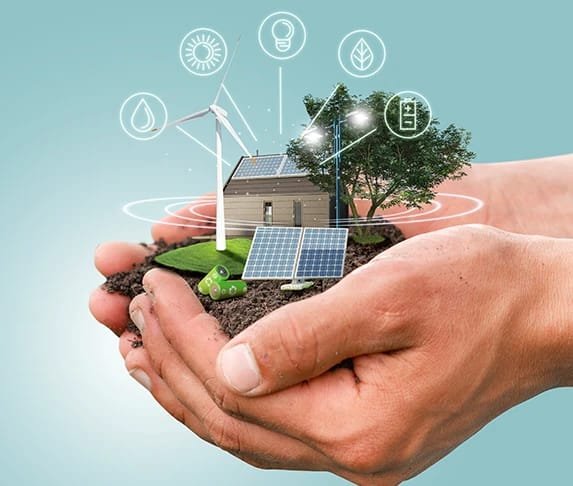A Guide for Teachers and Education Professionals: Effective Strategies to Enhance Professional Performance and Improve Education Quality
Education is the cornerstone of building communities and achieving development, and the role of teachers and education professionals is pivotal in achieving effective educational outcomes. By following a comprehensive guide, teachers and education professionals can improve their practices and create learning environments that foster effective learning and the development of students’ skills.
1. Effective Lesson Planning
Analyze Student Needs: Teachers should assess students’ levels and educational needs before planning lessons, allowing them to provide content that fits their abilities and skills.
Set Clear Learning Objectives: Teachers should define clear objectives for each lesson, which helps students stay focused and makes the lesson more effective.
Diversify Teaching Methods: It is recommended to use multiple teaching strategies (e.g., presentations, hands-on activities, and group work) to make lessons more engaging and meet the varied needs of students.
2. Positive Interaction with Students
Build Trusting Relationships: Creating a supportive and safe environment is crucial for making students feel comfortable participating in class and engaging in learning activities. When students feel supported, they are more likely to participate actively.
Encourage Critical Thinking: Teachers should encourage students to ask questions and analyze information through activities that promote critical thinking, helping students become independent learners.
Active Listening: Teachers should listen to students attentively and offer the appropriate support, fostering positive communication and demonstrating respect for their thoughts.
3. Using Technology in Education
Educational Platforms: Using platforms like Google Classroom and Moodle provides tools to present materials, interact with students, and assess their progress.
Educational Apps: Apps like Kahoot! and Quizlet make learning fun and interactive through educational games.
Remote Learning: Offering interactive content and live lessons online allows students to access education from anywhere, enhancing flexibility and supporting students with special needs.
4. Continuous Assessment and Feedback
Short Tests and Daily Activities: Using brief tests or daily questions allows teachers to gauge students’ understanding continuously and identify areas where they need improvement.
Constructive Feedback: Providing constructive and encouraging feedback is essential for helping students recognize their mistakes and work on improving their performance.
Diverse Assessment Methods: Including varied forms of assessment, such as projects, presentations, and research, gives students the opportunity to demonstrate their understanding in different ways.
5. Ongoing Professional Development
Attend Workshops and Training Courses: Participating in workshops and training courses helps teachers develop their skills and stay up-to-date with new teaching methods.
Self-Learning: Teachers are encouraged to read recent articles and books on education and subscribe to online platforms to keep track of developments.
Collaborate with Colleagues: Working with colleagues and exchanging ideas and teaching practices can offer new insights and enhance professional growth.
6. Effective Classroom Management
Establish Clear Behavior Rules: Teachers should set clear rules from the beginning, helping students understand expectations and how to behave in the classroom.
Handle Tensions and Conflicts: Addressing issues flexibly and in a manner that maintains classroom harmony helps reduce tension and encourages collaboration.
Time Management and Minimizing Distractions: Effective time management and organizing activities keep the classroom well-structured and minimize disruptions.
7. Diversity and Inclusivity in Education
Adapt to Student Diversity: Teachers should recognize the individual differences among students and provide strategies that cater to their needs.
Inclusion of Students with Special Needs: Teachers should develop lesson plans that incorporate methods to support students with special needs, promoting their inclusion in class.
Respect Cultural Diversity: Teachers must be aware of cultural and religious differences among students and ensure that teaching materials reflect these diversities.
8. Psychological Guidance and Support
Focus on Mental Health: Teachers should provide psychological support, especially during difficult or transitional times, helping students cope with personal challenges.
Teach Emotional Intelligence: Teaching students how to manage their emotions, such as anger or anxiety, can help them learn more effectively.
Provide Personal Guidance: Teachers should be ready to offer advice on both academic and personal matters, supporting students’ overall development.
9. Motivating Students and Enhancing Engagement
Use Positive Reinforcement: Teachers should use words of encouragement to motivate students and build their confidence.
Link Learning to Real Life: Connecting academic content to real-life situations helps students see the relevance of what they are learning, boosting their motivation.
Collaborative Learning: Allowing students to work in groups fosters teamwork and encourages peer learning.
10. Implementing Modern Teaching Strategies
Project-Based Learning: Encouraging students to work on practical projects related to the lesson makes learning more effective and interactive.
Student-Centered Learning: Giving students more control over their learning process, such as choosing activities or delivering presentations, increases their engagement.
Inquiry-Based Learning: Encouraging students to explore and think for themselves through open-ended questions and investigative activities helps them discover knowledge independently.
Conclusion
Teachers and education professionals play a crucial role in shaping the future of the next generation. By following these strategies and practices, they can improve the quality of education and create effective learning environments. Consistent professional development, alongside a focus on student needs and building positive relationships with them, contributes significantly to enhancing educational outcomes and developing a generation capable of facing future challenges.




